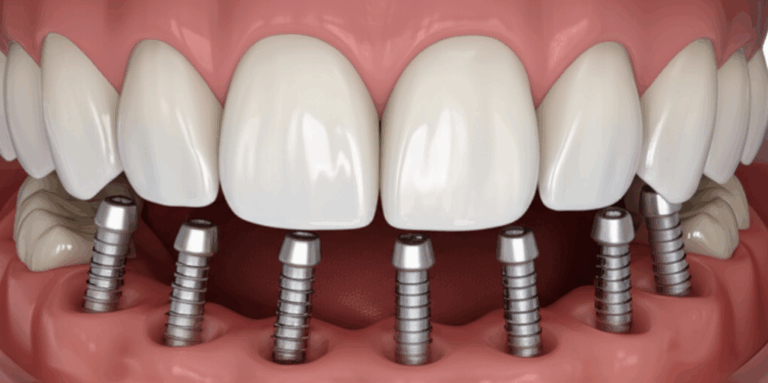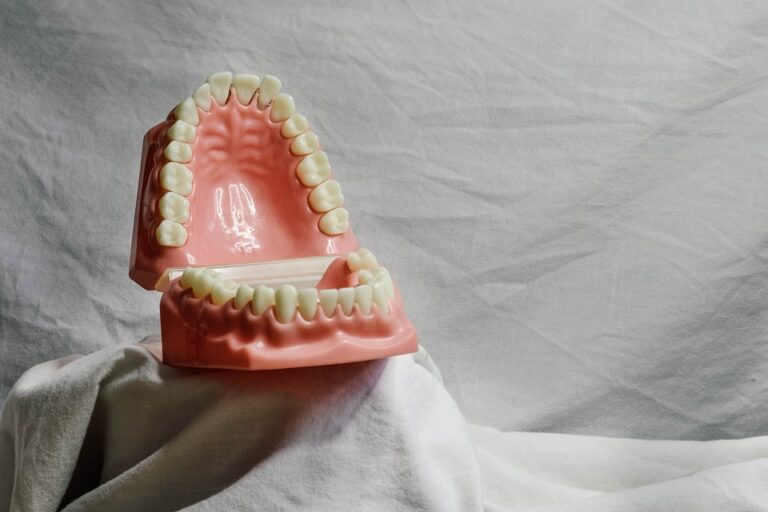
What Are the Problems with Dental Implants?
Dental implants are supposed to bring back your smile, close up empty spaces, and help you eat the foods you love again. But what are the problems with dental implants that aren’t often talked about? This article will show you those hidden problems—some happen a lot, some not so much. It’s a good idea to read this because knowing all the facts helps you make better choices and avoid being unhappy later. If you’re thinking about letting a dentist put little screws in your jaw, you’ll want to know all the ups and downs first.
Article Outline
- What Is a Dental Implant and How Does It Work?
- Why Do People Choose Dental Implants Over Other Options?
- What Are the Most Common Problems With Dental Implants?
- Can My Gums or Jaw Reject a Dental Implant?
- How Long Do Dental Implants Last and What Can Go Wrong Over Time?
- Are Infections Around the Implant a Real Risk?
- Does Sinus or Nerve Damage Happen With Implants?
- How Much Does a Dental Implant Really Cost—and Is It Worth It?
- What Problems Come From Poor Quality Labs or Materials?
- Can Dental Implants Break or Fail Completely?
- What Should I Ask My Dentist Before Getting Implants?
- Key Takeaways: What You Need to Remember About Dental Implants
What Is a Dental Implant and How Does It Work?
Dental implants work like little pegs that a dentist puts into your jawbone. Think of them as the base for a new tooth. First, the dentist drills a tiny hole in your jaw. Then, a metal screw goes in. After your bone grows around it, a fake tooth is put on top.
I’ve talked to people who thought it would be as easy as changing a tire. That’s not how it really is. The whole thing takes months to heal. You have to spend money, yes, but you also have to wait and take really good care of your mouth after the surgery.
Don’t forget, this “simple” fix still needs your jaw and gums to be healthy. If they’re not, problems can start before you even get your new tooth.
Why Do People Choose Dental Implants Over Other Options?
Let’s be real—dentures and bridges aren’t for everyone. Most people want a “real tooth” feeling, not something they have to take out at night or glue back in the morning. Dental implants fit tightly, won’t move around, and feel a lot more natural when you eat, smile, or talk.
Another reason: implants help keep your jaw from wearing away. When you lose a tooth, the bone can slowly go away. An implant can stop that from happening. Also, you don’t need to grind down the teeth next to the missing one like you do with a bridge.
But even with all these good things, there are still some downsides. Some people pick implants thinking they’ll never have to deal with mouth problems again. But honestly? Implants are great—until something goes wrong.
What Are the Most Common Problems With Dental Implants?
Let’s look at the details. The most common problems? Pain, swelling, bleeding, or infection after getting the implant. Your jaw might hurt for a few days, and the gums can get swollen. Sometimes, the swelling doesn’t go away and you start to worry about it.
I remember one story: A friend had his implant put in just right, but three days later, the pain actually got worse. It turned out he had an infection under the gum. He needed antibiotics and missed weeks of work and sleep.
Also, sometimes the implant just doesn’t work. Your body isn’t a robot; now and then, it pushes the implant right out. That might mean you’ll need more surgery or you’ll lose the implant and your gums could sink in. If you don’t take care of your mouth well after, small issues can turn into big ones quickly.
Can My Gums or Jaw Reject a Dental Implant?
Here’s a tough situation: You did everything right, but your jawbone just won’t join with the metal screw. Dentists call this “implant failure.” Your immune system might think the titanium is something bad and attack it.
Your gums matter a lot, too. If you’ve ever had gum disease, your mouth is already more likely to have trouble. Rejection can pop up with pain, loose teeth, or swelling that hangs around. Sometimes the implant comes out before you even get your new tooth put on top.
This can happen even if you think you’re healthy. I’ve seen adults get surprised because of smoking, diabetes, or even some medicines they’re taking. Always ask your dentist about what could go wrong before you start.
How Long Do Dental Implants Last and What Can Go Wrong Over Time?
We all want solutions that last a long time. Implants are called “permanent,” but that’s not exactly true. Problems can show up years later—even if things seemed perfect at first.
Think of it like a car: even if you clean and care for it, sooner or later, parts may break. With implants, the screw might come loose or the fake tooth might crack. Or, your jawbone can shrink—even though implants are supposed to help stop that.
I’ve seen people happy with their implants—until they had trouble five or ten years later. Fixing them can cost a lot, and sometimes you need a whole new implant. The best thing to do is keep up with regular dentist visits, but even then there’s no promise it’ll last forever.
Are Infections Around the Implant a Real Risk?
No one wants an infection. But with dental implants, germs can sneak in easily. Sometimes, food gets stuck around the base of the implant. Gums feel sore, red, and tender. If you see pus or smell something weird, that’s a sign of infection.
This usually happens to people who don’t clean well enough. Even if you brush a lot, little food bits can get stuck. Without flossing every day—and seeing your dentist often—things can get bad. In the worst case, infection can turn into “peri-implantitis,” which is just gum disease around your implant.
I knew a guy who had a nice-looking implant made at a 3d dental lab, but he didn’t floss. After a year, his mouth was swollen and hurting. That’s a hard lesson that taking care of your teeth after implants is just as important as the surgery.
Does Sinus or Nerve Damage Happen With Implants?
This is one of the scariest problems with dental implants. Sometimes, the implant is put in too far, hitting places it shouldn’t. If it goes too high up top, it can poke into your sinuses. That can cause a stuffy nose, pain, or even infections that keep coming back.
Nerve problems are another worry. Implants in your bottom jaw can get close to nerves. If things go wrong, you could have numb lips, gums, or chin. Some people feel tingling or sharp pain that just stays there.
These things don’t happen often but they’re serious. That’s why I tell everyone—ask your dentist how they keep you safe from these problems. If they look unsure or can’t explain it, find one with more practice or better tools. Labs with good digital scanners, like a 3d dental lab or emax dental lab, help stop mistakes, but people can still mess up.
How Much Does a Dental Implant Really Cost—and Is It Worth It?
Lots of people are shocked when they see the price of dental implants. You might think, “How expensive could it be?” Then you see a bill for $3,000 to $6,000 for just one tooth. That’s enough to make anyone nervous.
The other problem: Cheap implants can be dangerous. Some places use cheap metals or work with labs that aren’t great—sometimes a less-known china dental lab. That might save money now, but it could cost you even more later on.
And just because you pay a lot doesn’t mean you won’t still have problems. You might still need repairs or get an infection. That turns what was meant to be a “forever fix” into something you keep spending money on. Always ask your dentist what everything costs, which labs they use (like zirconia lab or emax dental lab), and what’s covered under warranty before agreeing to anything.
What Problems Come From Poor Quality Labs or Materials?
Not all crowns, screws, and posts are the same. Some labs use cheap metals that rust or bend easily. Some skip checking their work, especially if they are in a hurry. I’ve seen people get crowns with sharp edges that hurt their gums, or screws that snap in half.
Cheap parts might come from lower-cost places, sometimes even from a suspicious china dental lab. A good zirconia lab or trusted emax dental lab uses better, safer materials. Zirconia is strong and white, almost like your real tooth. Emax looks nice and lasts long, but both need careful, skilled workers and the right tools.
It’s really sad when someone’s crown cracks just from eating bread. Don’t be afraid to ask where your parts are from, what they’re made of, and which lab is doing the work.
Can Dental Implants Break or Fail Completely?
Even if everything goes well at first, your implant might still break. It does happen. If you bite down too hard or use your teeth to open things, you can break the tooth or loosen the screw. Even if you’re careful, rare things like metal getting weak can make implants fail.
I had a patient with an implant for three years before it suddenly became loose. An X-ray showed the post was broken under the gum. She needed surgery to take out the broken pieces before we could start again.
If an implant fails all the way, you’re back to the start. Gums can pull back, bone can shrink, and you might have to go without a tooth. That’s why I always say: see your dentist for regular checkups so you can catch problems early.
What Should I Ask My Dentist Before Getting Implants?
Getting a dental implant takes a lot of trust—and money. That’s why asking good questions is really important. Here’s what I tell my friends before they say yes:
- What are my chances of problems, and how do you keep me safe?
- Do you use a local zirconia lab or emax dental lab?
- Who really makes and puts on my crown?
- How many implants have you done, and have they worked well?
- What happens if I have trouble or need a repair?
- What will aftercare look like for me?
If your dentist won’t answer or tries not to tell you, find someone else. This is your mouth—you deserve good answers and good results.
Key Takeaways: What You Need to Remember About Dental Implants
- Dental implants can change your life, but you have to know about the risks.
- Healthy gums and jawbone matter before, during, and after your new tooth.
- You might get an infection, have the implant not work, or even have things break—even years later.
- Cheap parts from bad labs can cause hidden problems. Good quality is important!
- Taking care of your teeth after the surgery (flossing, brushing, and keeping dental appointments) is just as important as the surgery itself.
- Always ask questions about costs, problems, parts, and which lab is making your implant.
- Good daily care is the best way to help your new tooth last.
Dental implants can make a big difference, but only if you really know what to expect. Take your time, learn as much as you can, and you’ll have the best chance for a happy, healthy smile.








